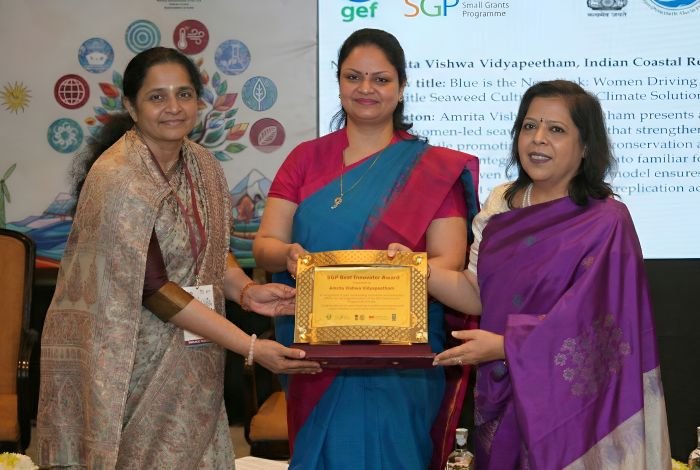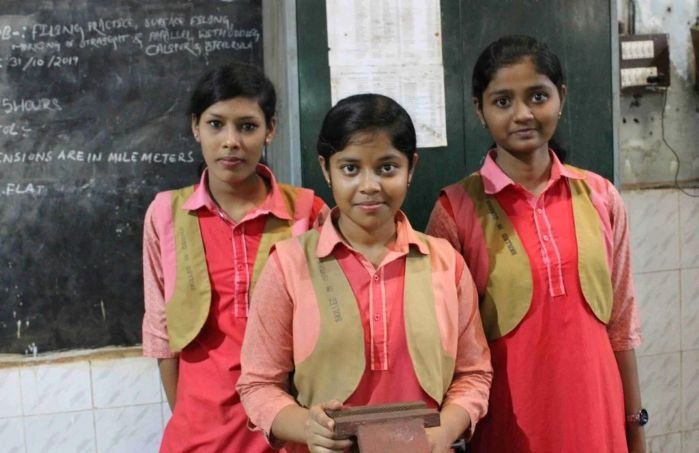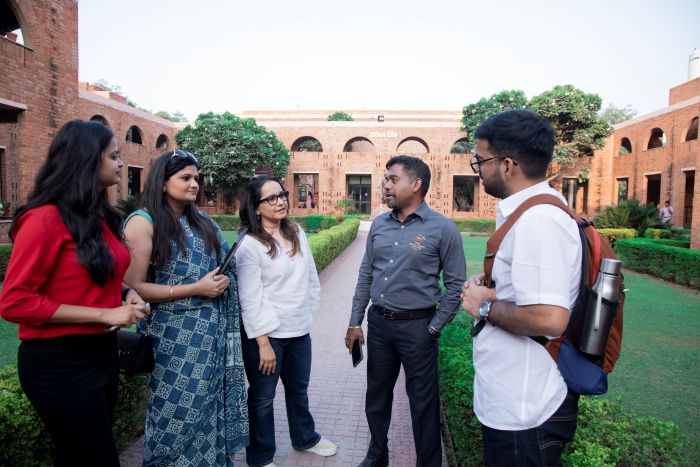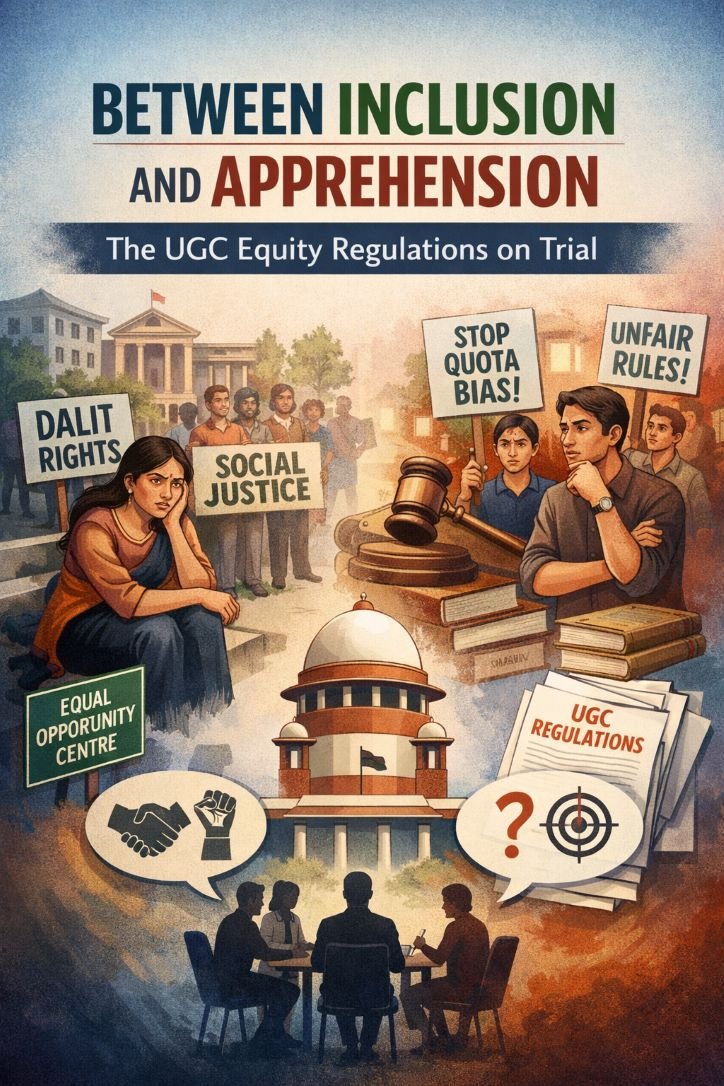
Ambarish Rai , National Convener of RTE Forum, a coalition of several organizations, groups and individuals including lawyers and educationists and spread over 20 states in India, died of suspected covid complications after being letdown by the ‘collapsing’ healthcare system on April 23 at an age of 61. His sudden passing away, no doubt, shocked almost everyone familiar with him and his body of work. The spirited and passionate work he was doing in the area of advocacy for the Right to Education will be missed for a long time, and unfortunately the stage play won’t be the same again because as many people would agree, he was simply irreplaceable.
(As writing his obituary is an obligation for a platform like ours devoted to Education sector, like any other writer, I did go through twitter, facebook and other news sources about him. I even attended two of his virtual memorial service sessions where I heard several of his colleagues, friends, activists and educationists recalling his fond memories, touching anecdotes and highlighting his resolute persona and leadership. But then, my own memory lane is also filled with sizeable episodic memories of him and so I decide to write in first person)

Beyond my own years of being educated and its associated ecosystem, until 2005, honestly I didn’t know about issues in education and like lots of journalists never thought the area was any lucrative for a career progression. But, then having landed in part-time job with a Bangalore-based publication (Education World), had to start on small assignments or to just provide small inputs. At this point, beyond 86th Amendment Act (2002) via Article 21A (Part III) that made free and compulsory education a Fundamental Right for all children in the age group 6-14 years, my knowledge on Right to Education movement or the National Alliance for the Fundamental Right to Education (NAFRE) was almost zero. It took me years to build some understanding around it.
The first encounter, I had with Ambarish Rai was outside the Gandhi Peace Foundation building. There was an event of the People’s Campaign for Common School Education (PCCSS). On the footpath of the road (DDU Marg) sat Prof Anil Sadgopal, the iconic professor of education, who for sure should be one of the greatest influencers on education activism in this country (His crop of disciples is still holding the hope for understanding of a bigger role for public education). As I was new, I went to spot where Prof Sadgopal was sitting and was surrounded by a few young reporters. I sensed, he is the right man for me to get a quote. Before I could complete my question, Prof chided me for the definition of primary education. He was agitated as most people including me knew primary as class 1-5 and the later three years till 8th class as middle. He took a few minutes to educate me on the definition of primary and at a small distance stood a man with a bunch of pamphlets in hand staring at us. As Professor was perhaps more busy than I thought as he left suddenly and joined the motley crowd on the road, Ambarish Rai, seeing my discomfort came to me handed over the pamphlet and showed me a contact number on it. I perhaps didn’t read through that pamphlet but after months, I came to know the person who gave it to me was actually him.
Still in my kind of infancy on education beat, I began to gather that there is a lobbying and pressure groups pressing for enactment of a law for Right to Education. Now I was fully aware that right to education movement started by some of the well known advocacy groups and legal activists in late 1990s and fueled by the Supreme Court Judgment in the case of Unnikrishnan vs State of Andhra Pradesh, was a national force and importantly it had almost no opposition. Before the enactment of the Right of Children to Free and Compulsory Education Act, 2009, there were seminars and discussions on it by several fora, so NAFRE even if the dominant force, wasn’t the only source for my occasional and brief reports on the developments. In those days, NCERT and even Kapil Sibal (HRD minister) were accessible so people like Prof R Govinda, a remarkable education planning public intellectual, could be cajoled to meet for a sound byte. Prof Vinod Raina, was another affable and down to earth expert, who would not let you down and give you a comment.
But still, Ambarish Rai was compelling. So, one day, I decided to write him in a section where we used to profile people (I wish news makers). Apprehensive that my editor (Dilip Thakore), could change his mind even at the last minute, I approached Ambarish ji without raising his expectations. In a basement, he welcomed me and we finished the conversation rather speedily but I had enough material to write those 500 words. I also took his picture. The item to my known fears was relegated to bottom, trimmed and steamed out. So, I didn’t rush to hand over a print copy to him. But then, he was well versed with the publication and may be his friends had sounded him about the article.
Thanks to Centre for Civil Society, which used to hold annual conference on school education, in 2009 December, Prof Govinda who was a keynote speaker shared that everything is done and RTE Act will be passed in next four months. That was the only time; I broke the news ahead of many from the mainstream media.
After the enactment, there was an euphoria all around and I believe several activists changed paths now that the work was done. But for me, the deadlines mentioned in the Act and implementation process, remained a communication channel for reporting but again it was still small time engagement for me personally. Then came the first stock taking convention and by that time RTE Forum had also taken shape and it was but natural for me to attend its plenary session. It was here that I first saw the commander Ambarish Rai. His oratory was natural but enticingly powerful.
For years that followed it, the stock taking national convention, became a sort of pilgrimage for me. It wasn’t a congregation of jhola chap activists only, it was a proper conference. As Prof Praveen Jha, professor of economics, JNU put it, a parallel source of research on RTE Act. Now after his death, can I gauge how much contribution Ambarish Rai made to the discourse on this historically significant legislation. The conferences were well laid with themes, experts and grassroots experiences. These had choicest, reputed and independent experts. For me, every time it opened up a new world. Hearing and acquainting with these kind of experts was an opportunity only luck could get and thank Ambarishji for this as he organized these evetns almost single handedly.
The challenges a progressive piece of legislation brings aren’t easy for any society. There is bound to be opposition as it impacts the system both ways. A lot of people in the community of providers were jolted as the law changed status quo and the system (governance) that had to implement it was equally shaken. So, while the movement that relentlessly worked for enactment of the law, like a tide ebbed, those seeking to halt its progress grew in every opportunity of possibility from judiciary to politics and outright scrapping lobbies. This mounting assault made Ambarish Rai more resolute and as a true champion, he continued this fight till his last. On April 3, 2021 before his illness he raised a number of questions at the virtual stock taking webinar.
Left to the government and its men, RTE Act would have been slowly and steadily rolled back, but Rai and his network, all these held it back through informed opinions, researched narratives and grounded status reports.
Coming back to my knowing of Ambarishji, spotting me regularly in the RTE Forum events for years, he was now acquainted with me by name and also the work I do. With Curriculum magazine, I started writing long reports about them. Seeing my appetite, he regularly invited me and seeing him so engaged with so many guests, I always maintained respect of his time and attention. It is he who would come up to me smile and pep me up. My comfort level with passing years reached to a point where I would call him for any support without thinking twice.
Couple of years back, I was to write a feature on Allahabad University in the backdrop of student unrest and HRD ministry inquiry. Being my first visit to the city, naturally, I called up several people for any contacts as I wasn’t sure if university administration would entertain me. So, in that order, my last call was to Ambarishji. He thought for a few moments and said he is really out of touch but introduced me to a senior journalist from UP. The later in a few minutes improved my understanding of higher education status in the whole country. The most recent memory of him, in person, was when he invited me to an in-house consultation, he was having with his colleagues and select experts on draft NEP before covid pandemic in 2019. It was a kind of privilege, I enjoyed when I used to go as part of delegation to the working group on amendments to Consumer Protect Act in mid 1990s. It was such an amazing knowledge session for me without participating. He knew, how will I use this session.
Be it bringing into early education into sharp focus or teacher crisis to the fore, Ambarish Rai, through RTE Forum rendered a marvelous service to the cause of education in India. He gave voice to hinterland and brought numerous success and failure stories to limelight. He might have started as student communist leader (National Secretary of AISF (1982- 1986)) and like a true communist indulged into leftist movements, but his education agenda and operations was more of an independent think tank and advocacy group. To me, it appears he had progressed in education with education campaign.

His Hindi was amazing and his customary speeches, which he used to make in the beginning and conclusion, were obviously curtailed but he was powerful with a good voice and tune. In later years, his English was equally comfortable. He would have made a good parliamentarian. With some many known experts speaking at his events, his thinking was also getting influenced. Street protests and grassroots campaigns were his specialty but he had come to the idea that unless political class is not sensitized, chances of success in implementation of RTE Act were less. He invited MPs across the spectrum, some were already in loop and others showed a lot of enthusiasm and several ideas discussed. Then, some brilliant Supreme Court lawyers, would also turn up in his convention and bring in perspectives that will keep your stomach full for weeks together. His association with Malala Fund and several other organizations, made him stand out as the voice for Right to Education internationally.
Soon after the onset of pandemic, RTE Forum under stewardship of Ambarish Rai and patronized by Council for Social Development, did the onerous task of tracking the education distress and discuss the unfolding of crisis that is affecting millions of children. Through its almost monthly webinars, the Forum not only performed as a watch dog but also lent expert perspectives and possibilities to ease the stress. Ambarishji would repeat the invitation message to me till he was assured I had seen it. These webinars like those events were full of experts some very rare and whatever I could reproduce by way of writing them, also made me part of his relentless campaign. On a few occasions, he complimented me by phone.
When, I was looking forward to build on our relationship and make it into a friendship, he is gone. As Urdu poet Iqbal put in his famous verse baḌī mushkil se hotā hai chaman meñ dīda-var paidā (with great difficulty, the one with true vision in born in the garden). Hopefully, he will keep inspiring likes of him and Right to Education will again get its hero.
–By Autar Nehru
Ambarish Rai : A Journey —
Students Movement
State general secretary of All India Students Federation (AISF) in Uttar Pradesh (1977 – 1982), National Secretary of AISF (1982- 1986)
Education Movement
- National Organizer, National Alliance for Right to Education and Equity, NAFRE (2003- 2005 July)
- National Convener, PCCSS (Peoples’ Campaign for Common School System/समान स्कूल प्रणाली के लिए जनमुहिम), a Network of Social activists and Educationists for Right to Education through Common School System established in 2005॰
- National Convener, RTE Forum 2010 to until his death








